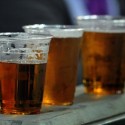Alcohol and Stress: Is There a Connection?
Not everyone drinks in response to stress. A number of factors, including genetics, usual drinking behavior, experiences with alcohol or other drugs, and social support, help determine whether a person will drink during a stressful situation.
Does drinking help people relax? Researchers aren’t quite sure. According to the National Institute on Alcohol Abuse and Alcoholism, there is some evidence that low doses of alcohol may reduce stress, but a large body of research demonstrates that alcohol actually induces the stress response.
What is it about stress that makes people turn to alcohol? Does alcohol help you relax, or can it make matters even worse? What else can you do to cope during a stressful situation?
Drinking in Response to Stress
Stress isn’t just the psychological feeling you have after you bounce a check or lose your job. Stress is a physiological response to certain stressful stimuli, including illness, injury, extreme temperatures, depression, and fear.
When your body perceives or experiences stress, it responds by secreting hormones into your blood in an attempt to cope with the stressor. This stress response affects the way your body functions, and alters your body temperature, appetite, and mood. This is one reason some people turn to alcohol after a stressful event.
In many cases, people will turn to alcohol when a stressful situation feels out of their control. Between 60-80% of Vietnam veterans treated for post traumatic stress disorder (PTSD) have alcohol use disorders. Many studies have also shown that stressful situations can lead to relapse among alcoholics.
People who don’t have the resources—such as a social support network—to cope with stress are more likely to drink in response to a stressful situation. They use alcohol to help buffer the effects of the stressor.
Alcohol’s Effects on Stress
Some studies have found that alcohol itself can actually trigger the stress response. But other studies suggest that low levels of alcohol can reduce stress, tension, and anxiety. Moderate drinking has even been shown to improve your mood. So which is it? Does drinking help or exacerbate stress?
Although low doses of alcohol have been shown to reduce stress, research has shown that alcohol induces some of the same physiologic effects as other stressors. Drinking alcohol interferes with sleep. It also numbs the emotions, impairing your ability to cope with stressful situations. Excessive drinking can lead to social isolation, anger, depression, and paranoia.
Other Ways of Dealing With Stress
Alcohol is not a healthy way of dealing with stress. Drinking to deal with stress can interfere with work, relationships, finances, and lead to more problems, like alcoholism and health complications.
If you find yourself in a stressful situation, it is important to have coping strategies that don’t involve drinking. Symptoms of stress include feeling tired, having back pain, headaches, stomachaches, and having difficulty sleeping. To reduce or control the stress you are experiencing, the National Mental Health Association recommends the following strategies:
• Learn to say no. If you are overwhelmed with responsibilities, make a point not to take on more than you can handle.
• Meditate. Take 10-20 minutes each day to quietly reflect. Listen to music, relax, and clear your mind of stress.
• Take one thing at a time. If your workload seems unbearable, pick one urgent task at a time to work on. When you finish that task, choose another.
• Exercise and eat healthfully. Get 20-30 minutes of physical activity on most days of the week and focus on eating a healthful diet. Limit your intake of caffeine and alcohol, both of which can interfere with your sleep.
• Share your feelings. Talk to a friend, family member, or healthcare professional about what is causing your stress. A friend or family member’s love, support, and guidance can help you through a stressful situation, and a professional is trained to assess levels of stress and recommend coping strategies.
• Learn to breathe. When stressed we frequently forget how to breathe properly. Our breaths become rapid and shallow. Learning a few breathing techniques might become a useful tool in combating stress.
In addition you may consider taking a good quality supplement. A supplement with vitamin B complex and magnesium may help to offset the effects of chronic stress on your health.
If you’re feeling stressed, it may help to talk with your doctor, who can refer you to a psychiatrist, psychologist, social worker, or other qualified counselor for professional help. But don’t wait until things feel “out of control.” By that time, you may no longer know that you need help.
_____
source: East Texas Weekly

